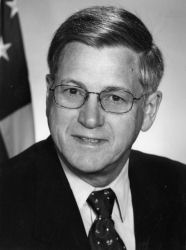A Quote by R. J. Cutler
The presidency made John Adams an old man long before there was television. As early as the nation's first contested presidential election, with Adams and Jefferson running to succeed Washington, you had a brutal, ugly, vicious campaign that was divisive and as partisan as anything we're experiencing today.
Related Quotes
According to Adams, Jefferson proposed that he, Adams, do the writing [pf the Declaration of Independence], but that he declined, telling Jefferson he must do it. Why?" Jefferson asked, as Adams would recount. Reasons enough," Adams said. What can be your reasons?" Reason first: you are a Virginian and a Virginian ought to appear at the head of this business. Reason second: I am obnoxious, suspected and unpopular. You are very much otherwise. Reason third: You can write ten times better than I can.
[John] Adams's perception of Europe, and especially France, was clearly different than [Tomas] Jefferson's. For Jefferson, the luxury and sophistication of Europe only made American simplicity and virtue appear dearer. For Adams, by contrast, Europe represented what America was fast becoming - a society consumed by luxury and vice and fundamentally riven by a struggle between rich and poor, gentlemen and commoners.
The first presidential veto, by George Washington, was a veto of Alexander Hamilton's formula for apportioning the House, and the one that Washington preferred was one that Thomas Jefferson produced, and that was one partisan issue. The apportionment formula that Jefferson produced gave an extra seat to Virginia. Everybody knew what that game was. Look, partisan interest in the census is simply nothing new.
I mean, obviously, one of the strongest arguments against evolution and selection of the fittest and progress, which is part of evolution, is the current field of the presidential candidates. We started off with Washington and Adams and Jefferson and then we had Lincoln, and now we moved ahead and look where we are now.
Consider this: The United States held its first presidential election in 1789. It marked the first peaceful transfer of executive power between parties in the fourth presidential election in 1801, and it took another 200 years' worth of presidential elections before the courts had to settle an election.
Do you know what causes low voter turnout in America? It's the result of having the fate of our nation at stake. This began with the bitter presidential election of 1828, which pitted the education, cultivation, and puritan constraint of John Quincy Adams against the yahoo populism of Andrew Jackson, thereby deciding permanently whether America would become a shining city upon a hill or an overlighted strip mall along a highway.
Deeply versed in history, [John Adams] said over and over that America had no special providence, no special role in history, that Americans were no different from other peoples, that the United States was just as susceptible to viciousness and corruption as any other nation. In this regard, at least, Jefferson's vision has clearly won the day.
I think [John Adams's] influence on the federal Constitution was indirect. Many including James Madison mocked the first volume of Adams's Defence of the Constitutions of the United States in 1787. But his Massachusetts constitution was a model for those who thought about stable popular governments, with its separation of powers, its bicameral legislature, its independent judiciary, and its strong executive.































